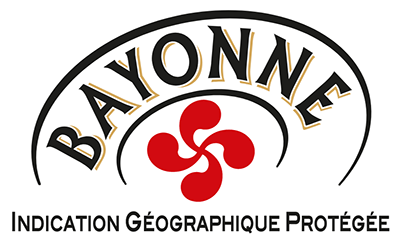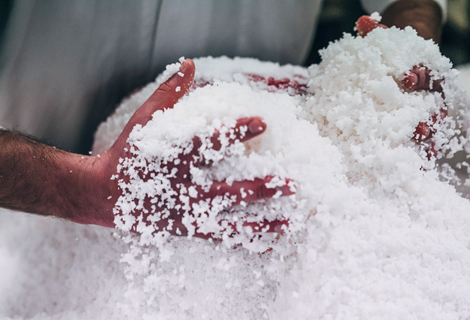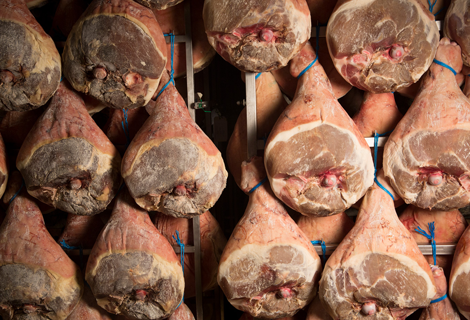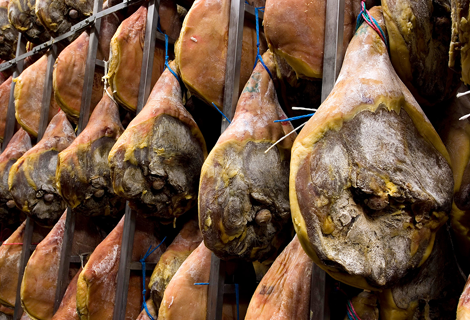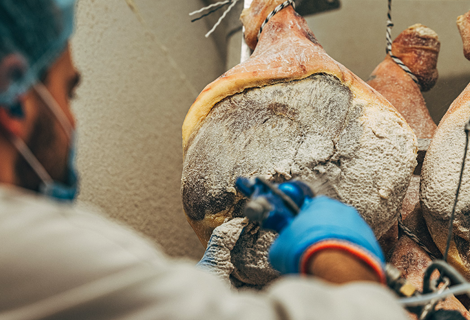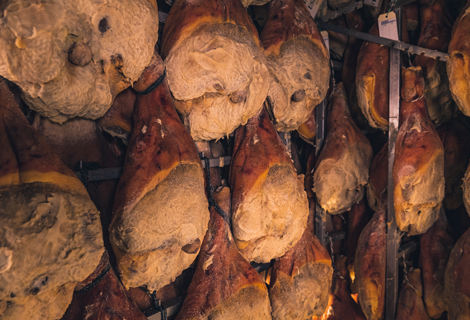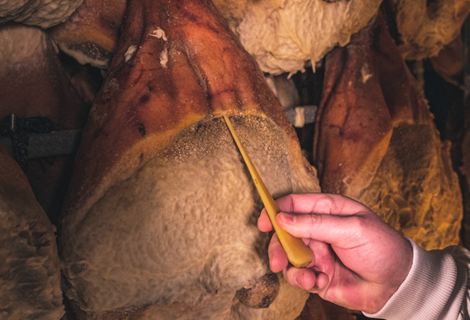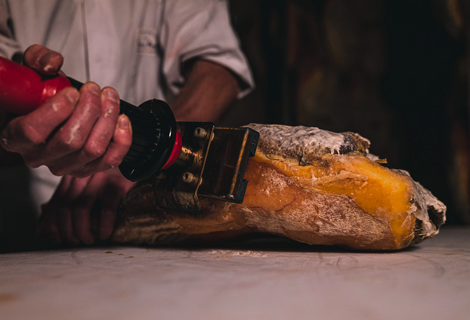The Bayonne Ham,
a Culinary
Heritage
And you’re the ones saying it
At the heart of the Adour Basin, in the Southwest of France, the Bayonne Ham is crafted. This territorial anchoring, which imbues the Bayonne Ham with its taste and character, has been guaranteed since 1998 by the Protected Geographical Indication (PGI). Melting in the mouth, with a delicate flavor and subtle saltiness, the Bayonne Ham is now the most esteemed internationally renowned French dry-cured ham!
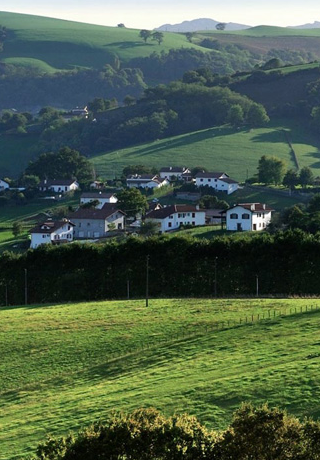
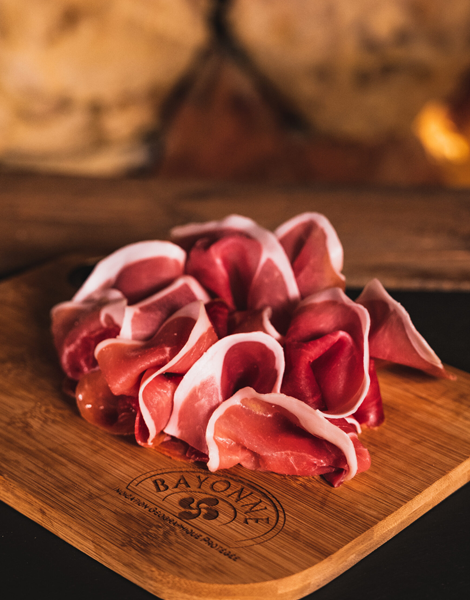
Culinary
heritage
OUR TERROIR,
A RICH HISTORY
As it was a thousand years ago, Bayonne Ham is crafted at the heart of a strictly delimited geographical area: the Adour Basin. Here, between the Atlantic Ocean and the Pyrenean mountains, unique conditions converge to produce Bayonne Ham.
Produced since the Middle Ages, mentioned in Gargantua, savored on royal tables, Bayonne Ham invites you to discover its legendary history!


MANUFACTURING
SECRETS
Shhh!!! Don’t tell anyone
Discover all the manufacturing secrets that make Bayonne Ham a unique and flavorful delicacy.
PGI Origin
Guarantee
Area of Birth and
Rearing of Pigs
Bayonne Ham is exclusively sourced from pigs born and raised in the greater Southwest of France.
Salting Area
of Bayonne Ham
All stages of Bayonne Ham production are carried out within the Adour Basin. This area benefits from an ideal climate for ham maturation under the “foehn effect”. This involves the alternation of mild and humid weather with drier days.
The salting and maturation area includes the department of Pyrénées-Atlantiques as well as the neighboring cantons of Gers, Hautes-Pyrénées, and Landes. It is bordered to the west by the Atlantic Ocean, to the south by the Pyrenees mountain range, and to the north and east by the Adour River.
PGI Origin
Guarantee
Area of Birth and
Rearing of Pigs
Bayonne Ham is exclusively sourced from pigs born and raised in the greater Southwest of France.
Salting Area
of Bayonne Ham
All stages of Bayonne Ham production are carried out within the Adour Basin. This area benefits from an ideal climate for ham maturation under the “foehn effect”. This involves the alternation of mild and humid weather with drier days.
The salting and maturation area includes the department of Pyrénées-Atlantiques as well as the neighboring cantons of Gers, Hautes-Pyrénées, and Landes. It is bordered to the west by the Atlantic Ocean, to the south by the Pyrenees mountain range, and to the north and east by the Adour River.
Protected Geographical Indication (PGI)
The PGI ensures the authenticity and quality of Bayonne Ham. It preserves tradition to offer you an incomparable taste experience.
The PGI certification highlights the commitment of the entire Bayonne Ham supply chain. Adhering to standards, tradition, and terroir ensures a unique product with consistent quality.
THE STAKEHOLDERS OF THE BAYONNE HAM SUPPLY CHAIN
Spread across the South-West quarter of France
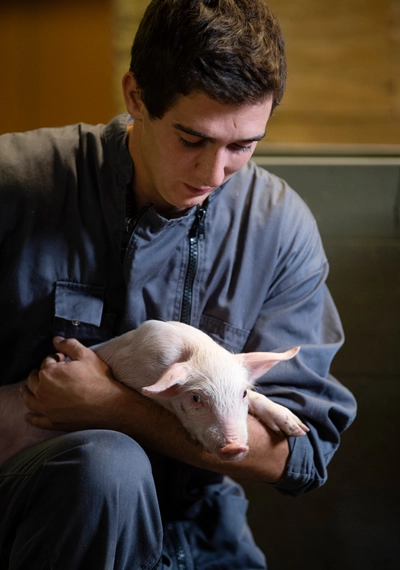
The Breeders
As the first link in the Bayonne Ham supply chain, breeders are committed to providing quality pigs born and raised in the greater South-West, nourished with locally produced cereals, of which 50% are grown on their own farms.
Committed Curers
The 28 curers of the Bayonne Ham supply chain are artisans who, by respecting the seasons and ancestral techniques, craft an exceptional ham after months of maturation, renowned like no other.

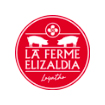


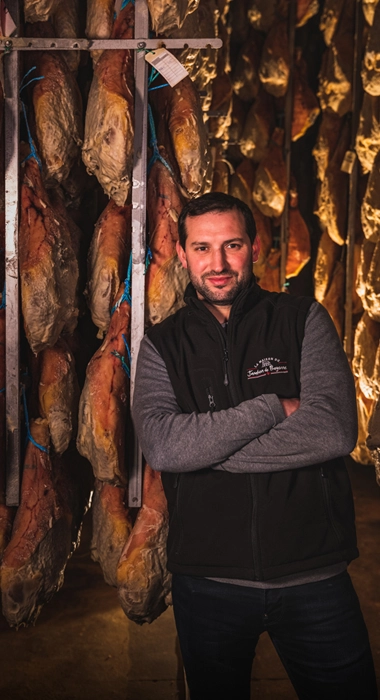
BAYONNE HAM answers your questions
Does Bayonne ham come from Bayonne?
Discover the answer here
It seems that Bayonne ham can be produced as far as Charente?
No, absolutely not. The processing and maturation of Bayonne ham can only be done exclusively within the Adour Basin. This area includes only the Pyrénées-Atlantiques department and neighboring cantons. This is clearly stated and specified in the specifications approved by the National Institute of Origin and Quality (INAO) and by the European Commission, which registers the specifications and the product denomination as PGI (Protected Geographical Indication). Any other place of production would be a misrepresentation. Only pig breeding is allowed in Charente (see geographical boundary). The hams are then cut and sent to various salting and maturation sites within the Adour Basin.
How to recognize a good Bayonne ham?
Whether the hams are whole or boneless, the date of salting is always indicated as a week number on the accompanying label. This gives you the duration of the ham’s production. The specifications require a minimum of 7 months of maturation. The average age of the hams is 9 to 12 months. Generally, the longer the ham’s production duration, the more it can develop its sensory qualities. The “Lauburu” (Basque cross), burned into the rind and always printed on the label, is the guarantee and distinguishing mark that makes Bayonne ham an exceptional ham. Regarding pre-cut and pre-packaged ham, you have a choice of different commercial brands; it’s up to you to determine which one suits you best. This assessment is very subjective, as each salter leaves their specific mark.
Why isn't Bayonne ham an AOP?
The AOP (Protected Designation of Origin) requires that all sourcing and processing operations be carried out within a single delimited geographical area. In the case of Bayonne ham, there is a delimited area for sourcing pigs and another delimited area for processing. That’s why it is protected under a PGI (Protected Geographical Indication).
What is the purpose of the PGI?
The PGI (Protected Geographical Indication) was established to protect the know-how and reputation of our products. The PGI protects the product specifications and its geographical designation against usurpation or counterfeiting. It informs consumers that the origin and quality of the product are certified and controlled. Thus, in the case of Bayonne ham, an independent and accredited certification body conducts checks to prevent, among other things, these usurpations or counterfeits. It also ensures compliance with the specifications by processors or breeders.
Isn't Bayonne ham too salty?
All dry-cured hams undergo the same treatment. It begins with salting, which allows the ham to be preserved. Bayonne ham is no exception: it is a salted product. Significant efforts have been made by curers to reduce the salt content and make it compliant with the provisions of the national nutrition and health plan.
Furthermore, only the spring salt from Salies-de-Béarn is authorized for salting Bayonne hams. Unlike sea salt, this spring salt, in addition to being very pure and naturally white, gives Bayonne ham a milder saltiness.
